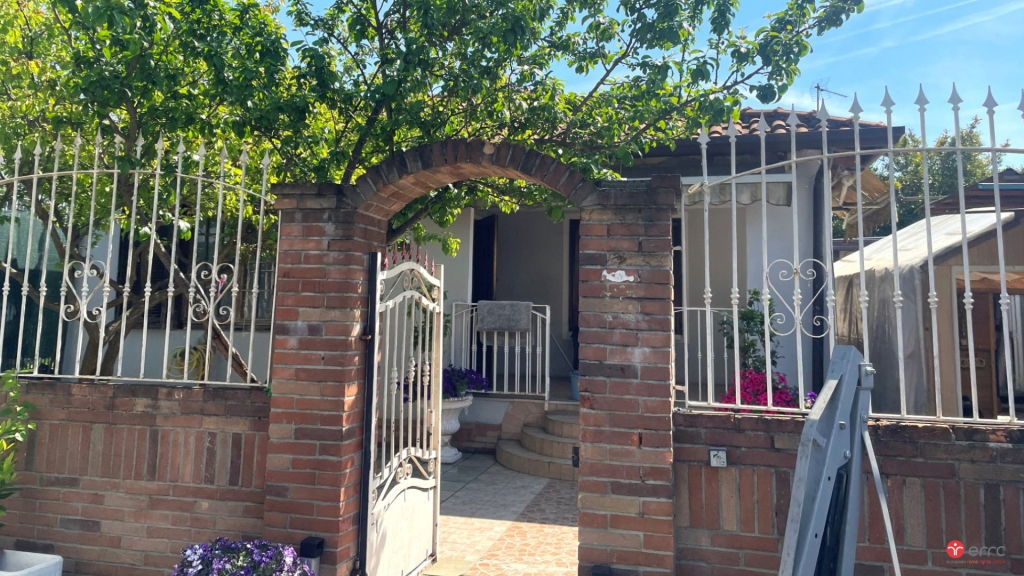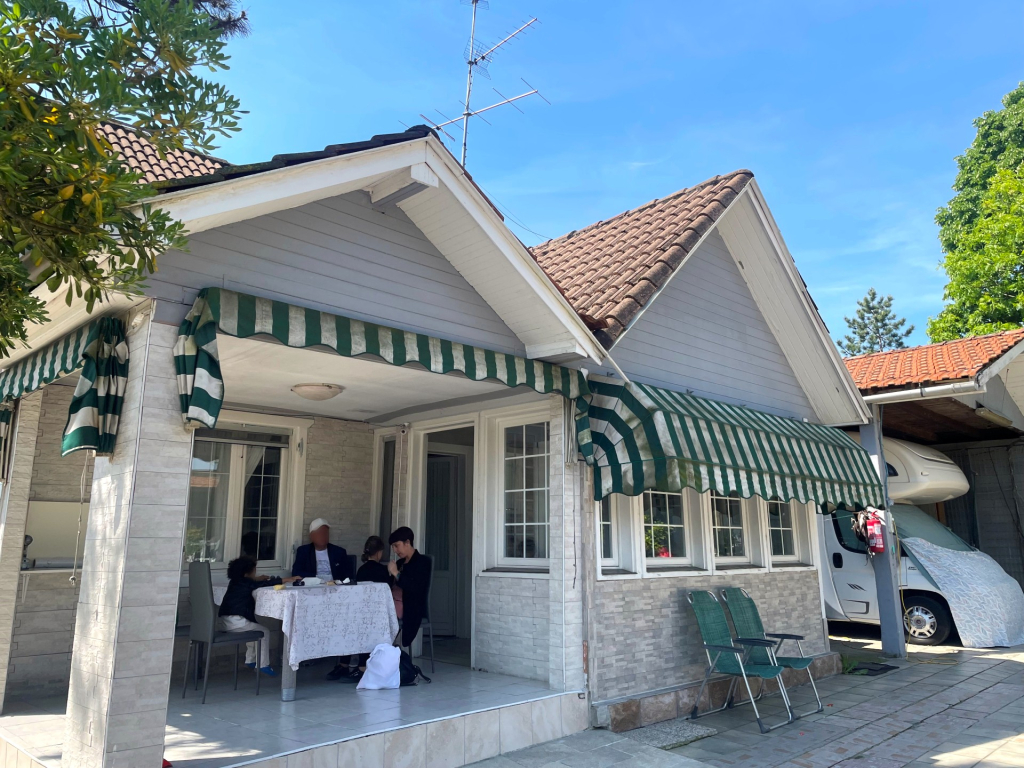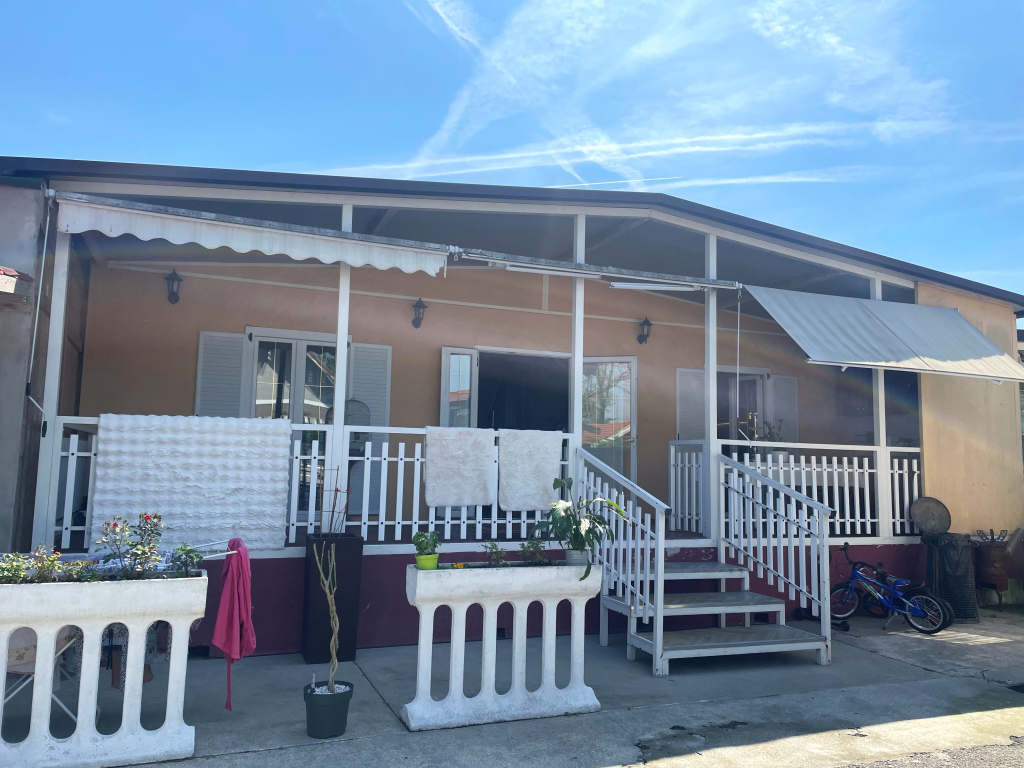The Village of Roses and Beyond: The Fight Against Forced Evictions of Romani Communities in Italy
24 June 2025

By Judit Ignacz
For about 25 years, the Villaggio delle Rose (Village of Roses), known as the Chiesa Rossa formal camp in Milan, has been home to more than 250 Italian Romani people, including 80 families and more than 100 children. Last year, the Municipality of Milan decided unilaterally to close the camp and issued a resolution to this effect. Their stated reasons: urban safety, social hardship, and environmental criticalities. But those who have visited the village, including the European Roma Rights Centre (ERRC), paint a different picture: clean, organised, and well-maintained legal prefabricated homes built through the labour and investment of a self-sufficient community of Romani families. A monument of contradiction to the municipality’s stated rationale for eviction.
The Village of Roses is home; it contains within it the memories, history, and dignity of its Romani residents. Many of them are descendants of partisans and survivors of fascist deportations to concentration camps. In alignment with this legacy, the village hosts Italy’s first monument commemorating the Romani genocide during World War II. It is a place of remembrance that welcomes schools, associations, and institutions to pay their respects every year on 27th January, Holocaust Remembrance Day.
Even so, the Municipality of Milan intends to make good the long-standing promise of Italian authorities to ‘overcome’ the camp by evicting the residents. Following the resolution from last December, the Romani families received an official notice on 12th February 2025, requesting them to voluntarily leave the area by 14th June 2025. This notice made vague reference to “support paths” being activated by the Municipality of Milan.
The residents of the Village of Roses are asserting their right to remain in a place that has been their home for a quarter century and which they have collectively built and sustained, despite the lack of support from the local authorities. In response to the eviction plan, they have proposed an alternative: to form a cooperative and transform the area into a sustainable, community-driven housing model. Their proposal would replace the outdated and racist “nomad camp” framework and become a recognised residential zone in Milan’s urban area.

Concerns and Negotiations
According to the Municipality, their decision to issue the closure order in December 2024 was driven by severe safety issues in the camp's electrical infrastructure, highlighting a high risk of electrocution identified by the utility company UNARETI. After this discovery, the municipality chose a top-down approach, deciding to close the camp instead of understanding the residents' needs and wishes through a dialogue.
On 30th May and 10th June 2025, meetings were held with city councillors of the Milanese municipality to discuss the future of the Village of Roses. During these meetings, an architect presented a redevelopment plan acknowledging the urgent need for structural improvements. If the redevelopment plan is approved, Romani residents will be required to leave the area temporarily while the work is done. However, critical questions remain unanswered: Where will families go during construction? How long will the process take? Councillors have vaguely proposed offering social housing for families for up to five years, and temporary shelter for individuals, but have not yet provided a concrete relocation plan.
Additionally, as a product of 25 years of state-imposed residential segregation, the Village of Roses bears the systemic issues and consequences: limited healthcare and employment access, irregular school attendance, and high school dropout rates as early as the age of 13. These meetings so far have lacked discussion concerning guaranteed access to education, employment support, and anti-discrimination measures. It has been suggested that these issues could be addressed later. However, this postponement risks prolonging the marginalisation that the Romani communities have long faced and, worse, might shift the responsibility from the authorities to the yet unformed residents’ cooperative.
Such delays may deepen existing vulnerabilities rather than provide meaningful support. By collaborating with the residents in reimagining their future, the discussions should go beyond housing to include access to healthcare, education, employment, women’s rights, and the relationship with the broader city.
Several residents have expressed doubts and scepticism about the feasibility of the proposed redevelopment and made clear they prefer not to leave the camp. Therefore, as a more immediate and practical step, they proposed assessing the electrical system with municipal technicians to determine whether critical repairs can be made. This would allow Romani families to stay while long-term redevelopment plans are finalised.
The Municipality is reportedly evaluating whether the existing homes in the camp meet minimum required housing standards. Discussions are continuing, and while three city councillors repeatedly expressed interest in the redevelopment plan, the future for the Romani residents remains uncertain.

Pattern of Forced Evictions
Forced evictions of Romani people in Italy are an ongoing, systematic issue. The ERRC’s most recent census of forced evictions of Roma in Italy shows that Italian authorities carried out at least 187 evictions between January 2017 and March 2021. These affected at least 3,156 people who were, in most cases, made homeless or put into unstable housing solutions.
In 2020, the European Committee of Social Rights found Italy guilty of violating the European Social Charter due to widespread discrimination in housing access for Romani communities, but the cycle continues. Entire Romani families have been driven from their homes in places like Giugliano in Naples, La Barbuta in Rome, or Via Germagnano in Turin. The evictions commence with little to no notice, and people are often either left on the streets or offered only temporary shelters far removed from their communities and livelihoods. Many times, families and small groups are evicted regularly from public areas, such as in Milan earlier this year, when a Romani couple in their nineties were evicted and their caravan (their home) destroyed to make way for a dog park.
The forced eviction of entire Romani communities and families without viable alternatives and agreed-upon relocation plans risks destroying families, disrupting children’s education, and erasing a site of collective memory. They echo a long and painful history of marginalisation, scapegoating, and exclusion of Romani people across Europe.
Italy must comply with international human rights obligations, and its actions must respect the rights of the Romani families to remain in their homes, prevent forced evictions, and provide rights-based, participatory housing alternatives developed in partnership with the affected Romani communities.




